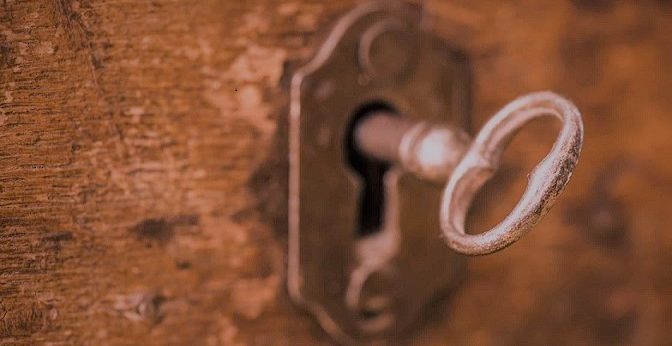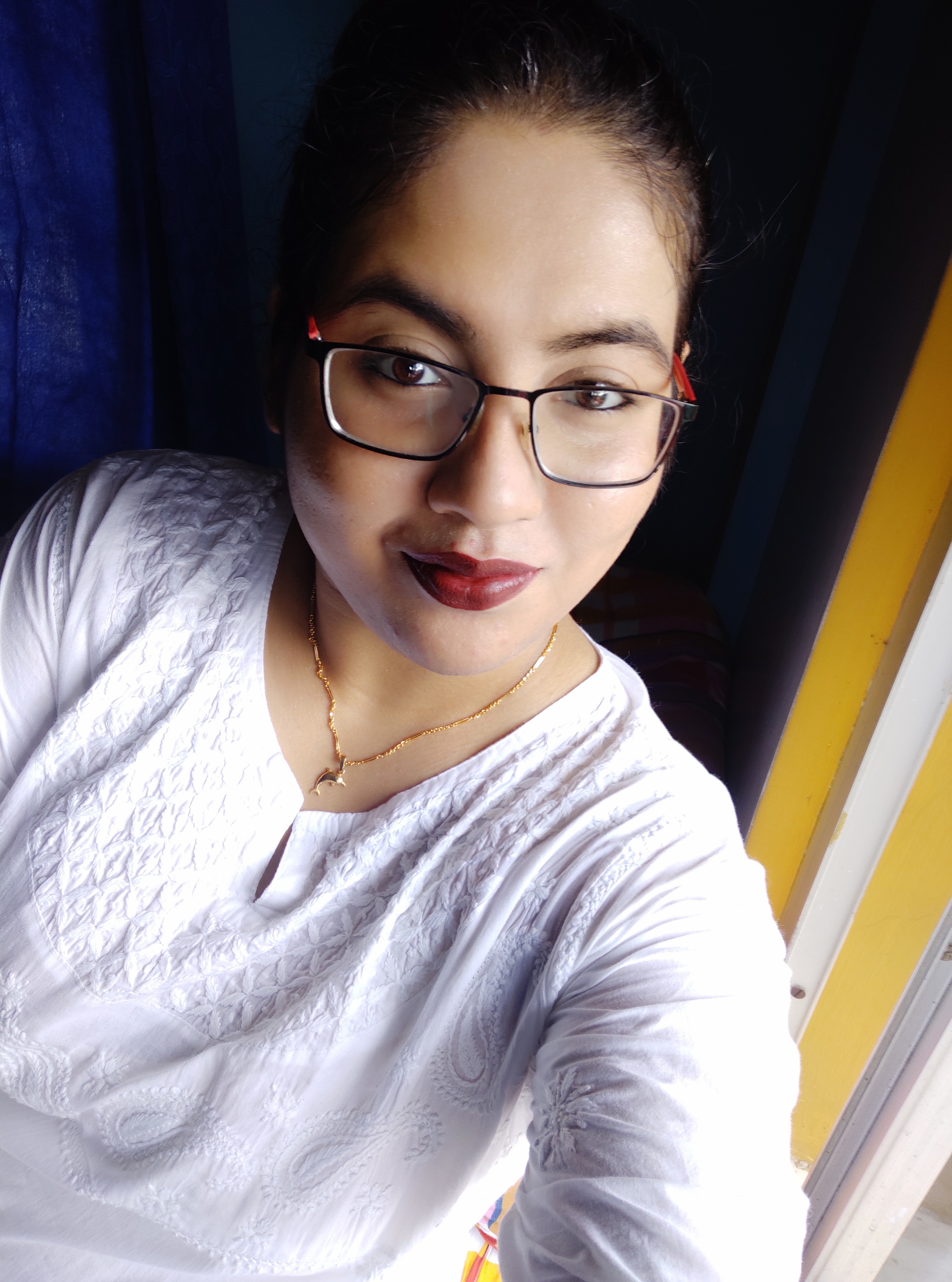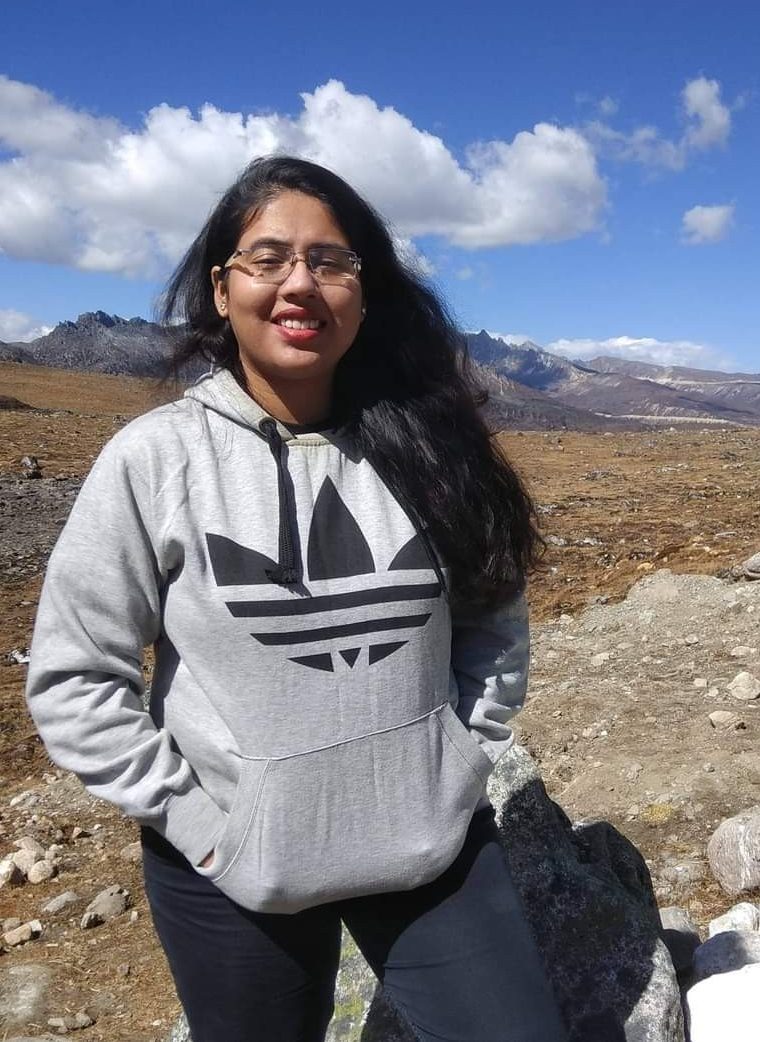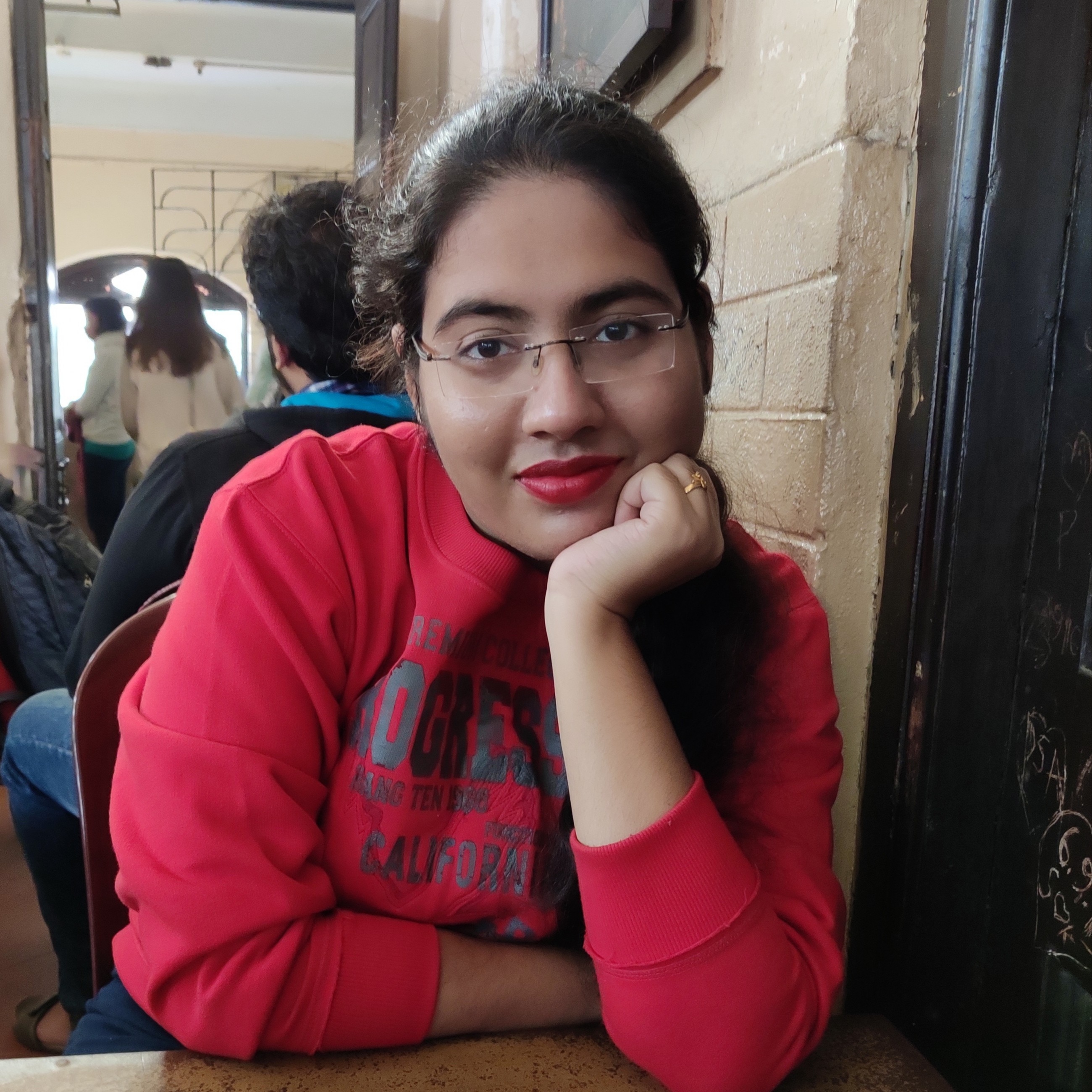 Little did I expect, though I’d hoped, that writers from around our Earth would submit work to be considered for publication in Alphabet Box. After all, with only one prior issue, AB was — and still is — very new and unknown among literary journals and writers. I’m pleased to report the hope is becoming a reality.
Little did I expect, though I’d hoped, that writers from around our Earth would submit work to be considered for publication in Alphabet Box. After all, with only one prior issue, AB was — and still is — very new and unknown among literary journals and writers. I’m pleased to report the hope is becoming a reality.
Most submissions came from North America and the United Kingdom, and I was surprised at the number from elsewhere. Tejaswinee Roychowdhury was a pleasant surprise from India. She is our Featured Writer for our second issue.
Alphabet Box and I are extremely pleased to share her flash fiction with you, perhaps introducing Tejaswinee to you for the first time as well. In our interview, we discuss the writer’s craft, giving and getting the best and worst advice, her Secrets I Keep From My Husband piece (and its multiple rejections), nicknames, and working for pizza.
Join me in learning more about this talented writer. — Stephen FitzGerald, Alphabet Box editor.
On the writing craft.
Do you think creative writing is more or less important than it was five or 10 years ago?
I think it has always been important. Even when we’re talking about our day at work, we’re telling a story. Narrations are how we communicate with each other; stories are how we teach our young ones and pass down traditions, customs, and impart life lessons. I cannot imagine the human experience without stories, and the medium doesn’t matter — it could be verbal, written, painted, carved, written into songs, or made into movies and stage plays.
How did you become a writer?
My mom introduced me to English fiction at a very early age. At 10, I started reading Harry Potter And The Philosopher’s Stone by J. K. Rowling and knew I wanted to write stories and novels. And I did write a lot for my school magazine. But once I started law school in 2011, I took a hiatus of almost a decade during which I received my Bachelor’s and my Master’s in law from the University of Calcutta. Beginning in 2019, I self-pubbed before gaining the confidence to send out works to editors. In May 2021, I had my first piece published — The Boy Who Ate Glass — in Indian Periodical.
But the reason I started self-pubbing in the first place is that I was encouraged by my mom’s success. By 2019, she was already publishing a lot in the Bengali language and she encouraged me to pick up my creative pen again. In fact, she is the one who got me into the habit of storytelling decades ago. I was a slow eater and in order to make me finish faster, while I ate, she asked me to narrate my day or the cartoon show I’d seen when she was out working. Haha! I chewed and talked, and was distracted enough to finish eating!
You could say that storytelling is more than just a passion to me. It’s a habit. And at 10, Rowling’s work made me realize that I can at some point in my life make something worthwhile out of this habit.
What does your typical writing session look like?
I’ve never really thought about this. Honestly, there is no session as such. Being a lawyer and now also an assistant professor at a law school two days a week, I pretty much write when I want to and when I can. I might go a long time without writing and there will be days when I cannot stop scribbling. I think the one constant thing about when I do sit down to write is that I’m neck-deep in it, even if it’s for a meager fifteen minutes.
How do you describe your writing style?
I would say that I’m an intuitive writer as opposed to one who plans it all out before sitting down to write. I tend to flesh out a character before putting them in a story. I get into the skin of that character and their story becomes my own, something that allows me to go with the flow. This is the reason you will often see me writing in the first person.
Of course, I challenge myself to find different ways to tell a story, but planning is something I’ll hardly do because it takes out all the thrill in discovering where the story is taking me. I want to be surprised by my own plots. Another thing is, I have to have at least a suitable working title before I start writing a story.
So with working title in hand, is it pen or keyboard next?
Pen to flesh out ideas and often the first draft. Keyboard for development and editing, or the first draft in case I haven’t used a pen at all.
Do you prefer writing in silence or with background music?
Either. If there’s background music, it’s generally soft piano and purely instrumental.
What do you like most about the writing process?
The editing.
What do you dislike most?
Nothing as such, but penning that first draft can be daunting!
What’s your greatest writing strength?
I think my ability to be comfortable moving with the flow and at my own pace helps me not only with my writing but in all aspects of life.
And weakness?
There are far too many projects that I start but lose the drive or the interest to finish right away. However, there’s a silver lining to this particular cloud. I’ve come back to projects, like Secrets I Keep From My Husband, and they’ve turned out better than I’d originally imagined.
How do you see your writing evolving?
I see my voice developing over the years with experience in both life and writing.
Do you plan on making a living from writing?
I want to have books on shelves in bookstores and libraries. I want people to know me as a writer. This will get me money and I look forward to that. But I don’t plan to make a living from it because frankly, it’s a lot of pressure.
On Secrets I Keep From My Husband.
Secrets I Keep… Anything you want to say about it? Was it easy or challenging to write?
I’d just say that I’m glad it got rejected a bunch of times because each time it did, I made significant changes before sending it out again.
Can you be specific about changes you made?
In the first version of it, the narrator was a man and the kink-talk was toned down, and it was titled “The Neighbors.” The first rejection was from Spry Literary Journal and while it didn’t match their vision, they said, “Continue to write boldly.”
When I revisited the briefly edited piece after the third rejection, I did so with the intent to submit it to Honey Literary. That’s when the most significant changes took place. For starters, it became Secrets and I introduced kink into the narrative. I went the sub-dom BDSM route because that’s the one that is heavily misunderstood. It not only is confused as an abusive relationship but also some people seem to think that it’s a license to be abusive in a relationship. What’s also misunderstood is the mindset of any woman who wishes to be a submissive, and because I probably won’t visit this later let me just say that it all comes down to desire and consent, not some kind of social conditioning to abuse — yes, psychology has a role to play but I’m not the expert to be commenting on it.
This brings me to the reason I changed the narrator of the story to a woman and it’s simple. I am a woman, and while gay men are certainly a minority still struggling to live their authentic selves, I think that even today, it’s very difficult for women to be expressive about their sexual desires without being judged. I simply thought I could present that aspect in the story better because I’m a woman who was born and brought up in a conservative culture and who continues to live in it.
Some writers write for an audience of many. Some for an audience of one, as creative self-expression or catharsis. Who’s your audience for Secrets?
A large part of the narrative of Secrets is an expression of my own sexuality. And I hope Secrets allows its readers to have a better understanding of bisexuality and kink. But that’s not why I wrote it.
There’s a moral dilemma in there — having sexual attraction toward someone other than your partner. This part, you could say, is a kind of protest. The general idea of hurting someone who has invested their soul in a relationship with you, all because you must have sex with someone else, is something that has neither my empathy or my sympathy. Perhaps, it’s because I’ve seen the other side of it.
I’ve seen how insulting it can be to the partner who has been left or set aside for the sake of sex. I’ve seen how such a thing can tear someone apart and grind their sense of self-worth to dust. I believe it’s an incredibly selfish and juvenile thing to do… and that is why Secrets ends the way it does.
I think today, virtues such as loyalty and faithfulness in relationships are far too often confused with puritanism. Anything that seems remotely traditional is looked down upon.
While monogamy isn’t our default setting as humans, we can be more humane with each other out of love. It’s compassion that truly makes us human. It’s like anthropologist Margaret Mead has said. A healed femur was the earliest sign of civilization because it required compassion from a fellow human being. I think a relationship can break off for a number of reasons but when it is just about sex, it comes from a lack of compassion for one’s partner.
On advice and success.
What is the worst and the best writing advice you’ve received?
The best advice came from my mom. I wanted to become a full-time writer and make my living out of it. But she told me that if I want to keep churning out works I’m proud of, I should treat it as a passion. She said that not all days are the same for a creative person, and there will be days when it might start feeling like a burden because the place where our creativity flows from requires replenishment, and only time can do that. Additionally, this world is mostly rejections and when one depends on writing to make a living, one might start hating the thing they thought they loved. I think it is a piece of brilliant advice because nobody wants a toxic relationship, especially with the thing they love.
As for the worst advice, I think one terrible piece of advice that is floating out there is that you need to attend writing workshops or get an MFA in Creative Writing to improve your writing and secure your career as a writer. Only writing a lot and taking chances on your works by sending them out can improve your writing — there is no shortcut to it. Also, people fail to see the privilege associated with advice like that. A career in writing that gives, takes a long time.
Writers like Ruskin Bond, George R. R. Martin, Stephen King, they all had jobs when they were young writers. It’s a hard reality which these writers have not only acknowledged but passed on as advice to younger writers. I’m sorry to be blunt, but attending workshops or getting an MFA will hardly secure a source of income while one’s writing career takes a sweet decade or two to take off. Not to mention, these things cost a mountain! While aspiring writers in a position of financial privilege can of course attend workshops and get themselves into MFA programs, it’s bad advice to say that any of it is mandatory.
What is your advice to independent authors on writing or marketing?
I’m way too young a writer to be giving any kind of advice! But if I have to, I’d simply say — pour your heart out on the pages and have faith in your work. Also, edit, edit, edit.
Marketing is not really my arena, although, I hear staying active on social media is fruitful.
Anything you want to share with younger writers?
This is not just for writers — you’re standing in your own way; nobody is fearless, but the world belongs to the brave, and bravery, my dear, is a choice.
How do you define “success” as a writer?
In general, any editor approving a piece of work for publication is a success. For me, the ultimate success — from where I am in life at the moment — would be completing my first novel and getting the manuscript picked by a traditional publishing house.
On Miscellany.
By North American conventions, your name is relatively long. Do you have a nickname?
Friends call me Tej, Teja and Teju. In school, one girl called me Tejpata, which is basically Bengali for the Indian bay leaf.
Several years ago, on the law student website Lawctopus, someone left a comment describing you as “a bookworm, a pop-culture geek, a foodie who is willing to work for pizza.” Is any of this true?
Well, I love reading but if there’s something that requires my attention, I’ll re-prioritize. I can be a geek about some things in pop culture, but you’ll find I’ve got no idea about several other things.
I think Phil Coulson is amazing but Daisy/Quake is super annoying and Grant Ward deserves justice. Heath Ledger’s Joker made absolute sense but both Thanos and Ultron were bat-shit crazy. I need Tom Hiddleston’s Loki in my life. Look, I’m a huge fan of the MCU and I desperately wish there was more of Robbie Reyes as the Ghost Rider.
I was very much into Game of Thrones. Supernatural is a favorite. Dean Winchester is mine. I loved Dexter. I could re-watch How I Met Your Mother a thousand times, and The Mentalist will always have my heart. See, here’s the thing, I’m not done but I realize that Alphabet Box’s readers might be.
And I’ll only work for money, but hey, a free pizza doesn’t hurt as an added incentive for short-term goals!
Speaking of pizza, your favorite ingredient?
Cheeeeeeeeeese! Lots and lots of it! Apart from that, I like being surprised. However, you’d win me over with something tangy and hot.
And what are you clueless about?
Squid Game, the Kardashians, reality shows, and I don’t understand who or what Instagram influencers are influencing. I don’t understand make-up trends where you’d cover your freckles with five layers of make-up and then give yourself fake freckles, and also how on earth do people manage to do those transition reels?
I’m sure there’d be more, but I’m clueless for a reason!
Are your parents proud of your writing?
My mom is very proud. But my dad… well, that’s tricky. He doesn’t view writing fiction as a real talent because apparently, I’m only making up stuff. I’ve heard him say that I’m wasting my time and talents. But he was fairly surprised when I told him about this interview and it seemed he was proud but was refusing to admit it. As I said, it’s tricky.
What books have most influenced you?
Rajorshi by Rabindranath Tagore (in original Bengali), Srikanto by Sarat Chandra Chattopadhyay (original Bengali), and The Book Of Fate by Parinoush Sainee / English translation by Sara Khalili have had huge impacts on me.
There are also poems that have influenced me. “The Road Not Taken” by Robert Frost, “Where The Mind Is Without Fear” or “Chitto Jetha Bhoyshunnyo” in Bengali by Tagore, “The Wreck Of The Hesperus” by Henry Wadsworth Longfellow, “The Raven” by Edgar Allan Poe, “The Shield of Achilles” by W.H. Auden, and “The Inchcape Rock” by Robert Southey.
Have you ever visited Cleveland, Ohio or been in the U.S.?
No, I’ve never stepped outside India. But I’m young and I hope to travel all over!
How do you view the writing community on Twitter?
In general, it’s very welcoming to new writers. I’ve hardly come across anyone snobby, hostile, or unwilling to help someone out. I’m also on Facebook, Instagram and LinkedIn. I chronicle my publications on Linktree.
Do you have a hobby or a passion besides writing?
I absolutely love listening to music. I bought an acoustic guitar a few months ago but I hardly get the time to practice!
Then, there’s traveling, even when it’s something as positively tedious as my daily five-to-six-hour commute to the law school where I teach. If I’ve got earphones on and I’m traveling, you know I’m living my best life in those moments!
Become an Alphabet Box Patron.
Tips Help AB Publish and Pay Writers!
Log in to manage your payments
